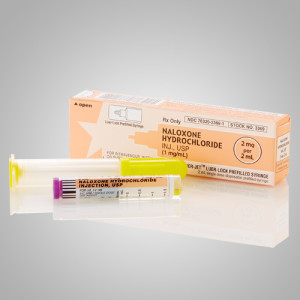What is the ORP?
The Overdose Response Program (ORP) is a program designed by the Department of Health and Mental Hygiene (DHMH) to train community members to do the following:
- Recognize an opioid overdose
- Respond to an opioid overdose (e.g., call 9-1-1, use the recovery position, perform rescue breathing)
- Know how to use naloxone in the event of an overdose
Who should participate in the ORP?
- Anyone over the age of 18 is eligible

- Anyone with close contacts (e.g., family members, friends, housemates, neighbors) who are using opiates
- Anyone who may be in a situation (e.g., work, volunteer, social) where an overdose may occur
- Anyone currently receiving methadone
- Anyone with an opiate prescription
- Anyone with a history of opiate abuse
- Anyone suspected of using opiates for non-medical reasons
Where can I get trained?
The St. Mary’s County Health Department will be offering the Overdose Response Program for free to community members who may be able to save the life of someone experiencing breathing problems from opioid overdose.
Visit http://www.smchd.org/overdose/ to register.
Successfully trained individuals will receive a certificate allowing them to obtain a prescription for naloxone (Narcan®), a life-saving medication that can quickly restore the breathing of a person who has overdosed on heroin or prescription opioid pain medication like oxycodone, hydrocodone, morphine, fentanyl or methadone.
Who Should Receive a Naloxone Prescription?
- Anyone who has completed the Overdose Response Program
- Anyone with a known history of IV drug use or misuse of prescription opiates
- Anyone who receives high-dose opiates or receives opiates chronically
- Anyone who has been hospitalized for opiate overdose
- Anyone who uses opiates with antidepressants, benzodiazepines, alcohol, or other drugs
- Anyone who uses opiates with a history of major organ dysfunction (renal, hepatic, cardiac, pulmonary)
- Anyone using opiates with a history of mental illness
- Anyone receiving treatment for substance use disorder

